Eating to beat heart disease, is it possible?


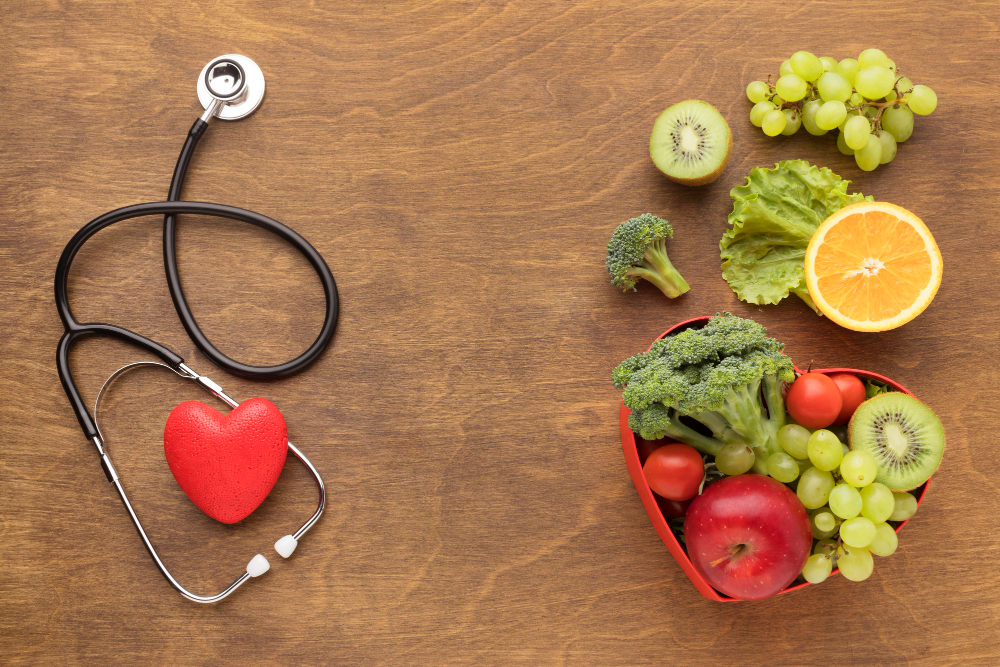
The heart is one of the vital organs in the human body. It pumps fresh blood to your body and receives used blood from different body parts. It is located in your chest, and its function is incredibly crucial to your survival. So, you should be worried about the health of your heart.
To check the health of your heart, you can take one of our at-home Heart Risk Disease Blood tests, see here.
Heart disease is among the most prevalent causes of death throughout the world. In 2020, heart disease caused 51,979 deaths in England, making them the third most prevailing cause of mortality after COVID-19 and cancer. But what causes your heart to stop working? Cardiovascular health problems usually occur due to these crucial factors discussed below.
In this condition, the fatty deposits gradually build up on the inner walls of the arteries. These deposits restrict the flow of blood to the heart, causing heart muscle death. Your cholesterol levels and total fats flowing in the blood are fundamental causes of this condition.
It can occur at any age, but occurrence in advanced age is particularly critical because, in older age, the resistance and elasticity of arteries are significantly reduced, and even moderately high blood pressure can cause your arteries to rupture (haemorrhage). The outcome of such an event is usually death.
It is a general term used to describe the narrowing of blood vessels and stiffening of the walls of arteries. So, atherosclerosis is a specific type of arteriosclerosis. Coronary arteries supply blood to your heart. Arteriosclerosis leading to coronary artery disease could be fatal for your heart.
The answer is a flat 'yes'. Anything you eat has a direct impact on your physical well-being.
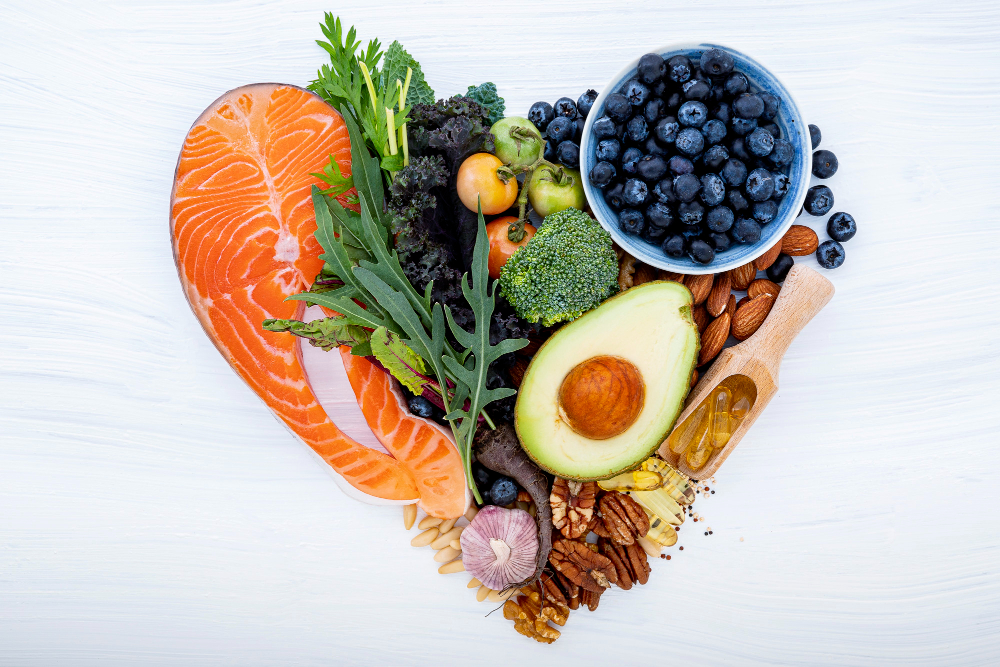
Your heart health depends upon many factors, but the role of diet is paramount. The following dietary and lifestyle elements are essential for your heart health.
It is a fatty compound used by the body to synthesise steroid hormones and is essential in various body functions. The liver produces it from its precursors, and it also enters the body through diet. It is an integral component of the cell membranes. The total cholesterol in your blood should be less than 200 mg/dL. If your diet is rich in fats, the total cholesterol in your blood is likely to go higher.
The cholesterol could be 'good' or 'bad'. The bad cholesterol is the low-density lipoproteins (LDL), and it has the potential to settle along the inner walls of your arteries, thus forming plaques. Therefore, your dieting strategies should reduce the level of this bad cholesterol.
To learn more about cholesterol, see our information page here.
Have you ever noticed the fat present in beef? It is a white solid substance which melts at 32-35°C. It is saturated fat and is called 'bad fat' because it can increase your bad cholesterol.
The most common sources of dietary saturated fats are animal products, e.g., beef, lamb, butter and plant products, e.g., coconut oil, palm oil etc... Trans fats also fall in this category and are the worst types of fats to eat.
Excessive saturated fats in your diet could be a worrying sign for your heart. A good and healthy diet should limit the intake of saturated and trans fats.
Blood flowing in the arteries has a certain pressure. It is the pressure exerted by the blood on the walls of your arteries. Your physician measures it, and the standard value should be 80 mmHg for diastolic and 120 mmHg for systolic pressure. A salt-rich diet can cause your blood pressure to rise. If your arteries have lost elasticity due to any reason, the increased pressure can lead to cardiac stroke. So, a heart-friendly diet should aim to lower blood pressure and keep it around good average values.

Our body needs salt (sodium chloride: table salt) for a variety of functions. The American Heart Association recommends that the daily salt intake of a person should be less than 2300mg. So, a hear-healthy diet should aim to lower the salt intake. If you consume salty foods, your blood pressure is likely to rise.
These are the principal heart-healthy fats. They are usually liquidised at room temperature and are classified as 'good fat'. They are primarily derived from plants and reduce the risk of heart disease by lowering the 'bad' cholesterol.
So, a heart-healthy diet should replace animal fats with plant-based fats, e.g., sesame oil, canola oil, sunflower oil, peanut oil, avocado oil and olive oil.
Let's introduce you to some extremely heart-healthy foods.
Olive oil
Olive oil is produced by crushing the fresh olives. Its virgin form is beneficial as it is rich in omega-three fatty acids.

If you can replace the saturated fats in your diet with olive oil, it has the promise to lower your bad cholesterol. All healthy foods should incorporate olive oil as a source of healthy fat.
It could also be used with bread and salad.
The substitution of fats and salty foods in your diet with vegetables can bless your heart. Fresh vegetables are a rich source of fibre and have no cholesterol or saturated fats.

Besides decreasing your bad cholesterol, they can also help you maintain a healthy weight and thus lower the risk of cardiovascular disease.
Salmon is a treasure of omega-three fatty acids, healthy fats that can reduce blood pressure and curb heart diseases. They are also helpful in inflammation. It is recommended that you use two servings of salmon or any other oily fish every week. A 6.0 oz serving of wild salmon can provide you with 1774 milligrams of omega-three fatty acids.
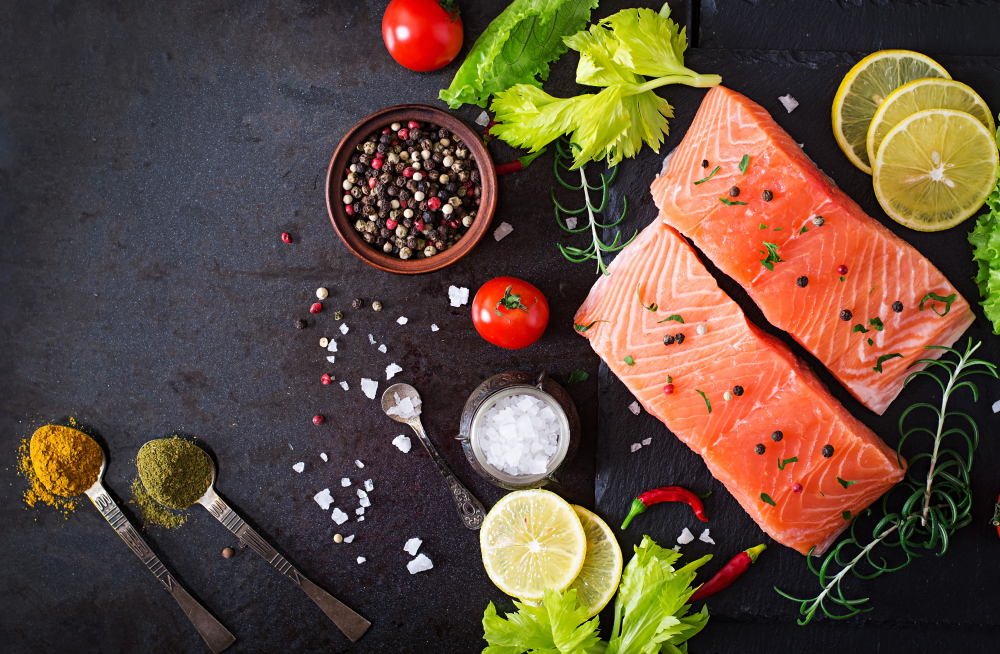
The farmed salmons are an even richer source of omega-three fatty acids at 4504 mg/ serving. The fish are rich in docosahexaenoic acid (DHA) and eicosapentaenoic acid (EPA), the two most important fatty acids found in marine animals. They are collectively known as marine omega-3s.
If you are a nut lover, there is a piece of good news for you. Include walnuts in your diet. These are well known to decrease bad cholesterol and protect your heart's arteries from inflammation. They are a beneficial source of heart-friendly fats and antioxidants.
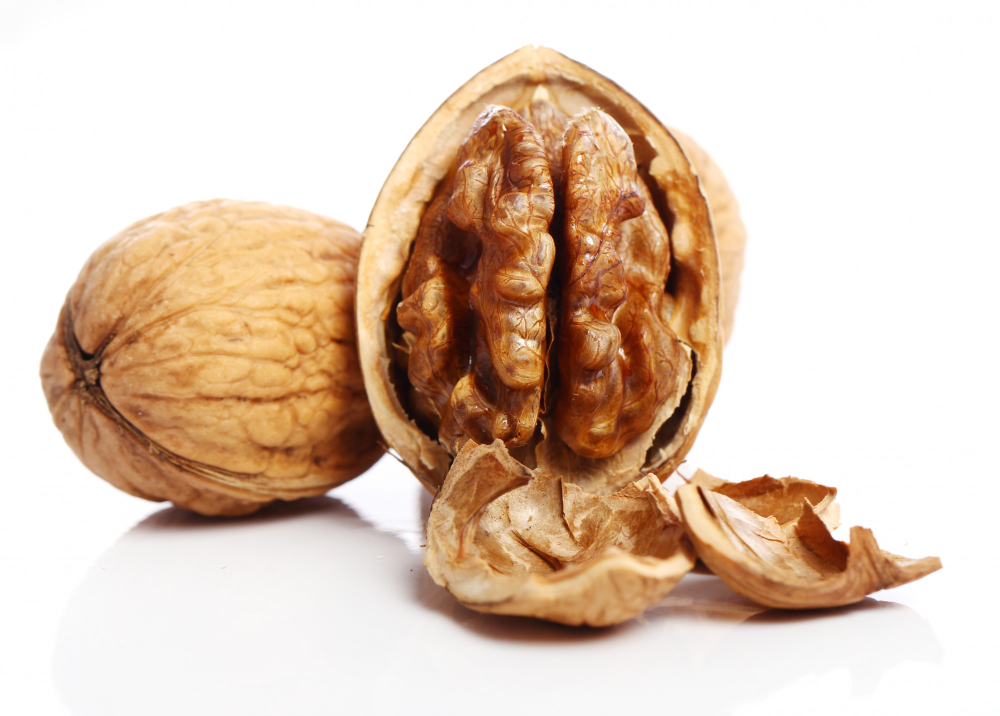
They are also a good source of plant sterols, monounsaturated fats and fibre. A 100-gram serving size can deliver 65 grams of fats. Only 6 grams of these fats are saturated. It is lower in cholesterol and a rich source of vitamins, iron, magnesium, sodium and calcium.
So, it would be wise to replace potato fries and roasts with a handful of walnuts.
Almonds are also a valuable source of dietary fibre, sterols and heart-healthy diet monounsaturated fats. A handful of almonds per day can reduce your bad cholesterol and lower the cardiac risk factors.
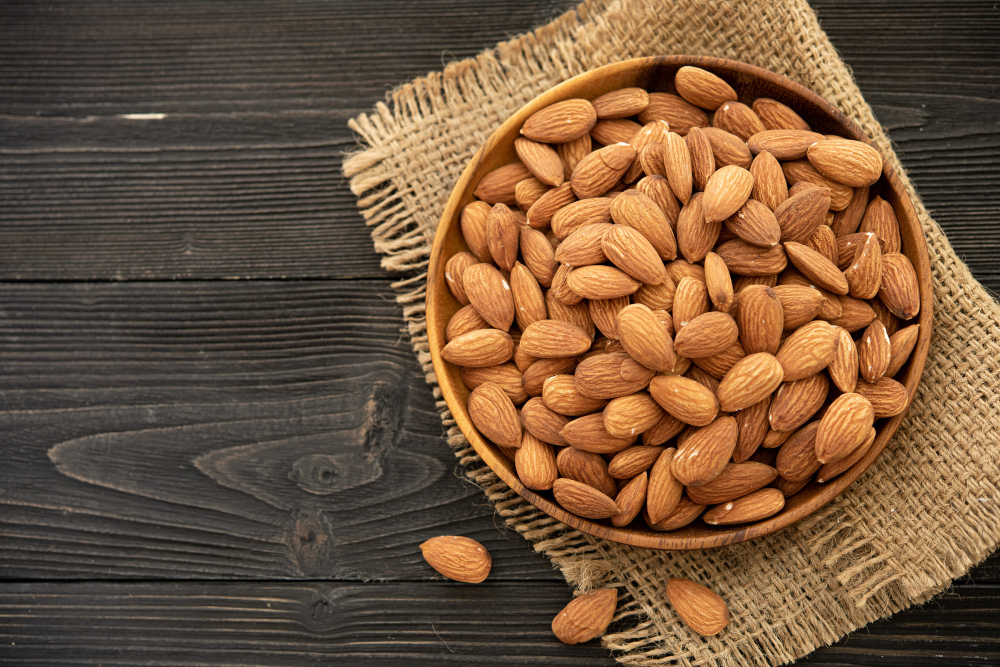
Almonds are highly dense in valuable nutrients. One ounce of almonds can provide you with;
165 calories
14-gram fats (only 5% is saturated and 80% is monounsaturated)
6-gram carbohydrates
6-gram proteins
3 grams fibre
Some money spent on almonds can be a worthwhile investment towards your heart health.
If you drink alcohol, shift immediately to red wine. It is a rich source of catechins, quercetin and Resveratrol, the essential antioxidants that may help protect your arteries. In an experiment conducted on hyper cholesteric hamsters, these phenolic compounds protected the hamsters against the accumulation of fatty streaks in the aortic artery.

It can also shift your cholesterol balance in favour of good cholesterol. However, don't drink too much. A person should monitor their alcohol consumption carefully.
If you like potatoes, use older and sweet potatoes instead of normal potatoes.
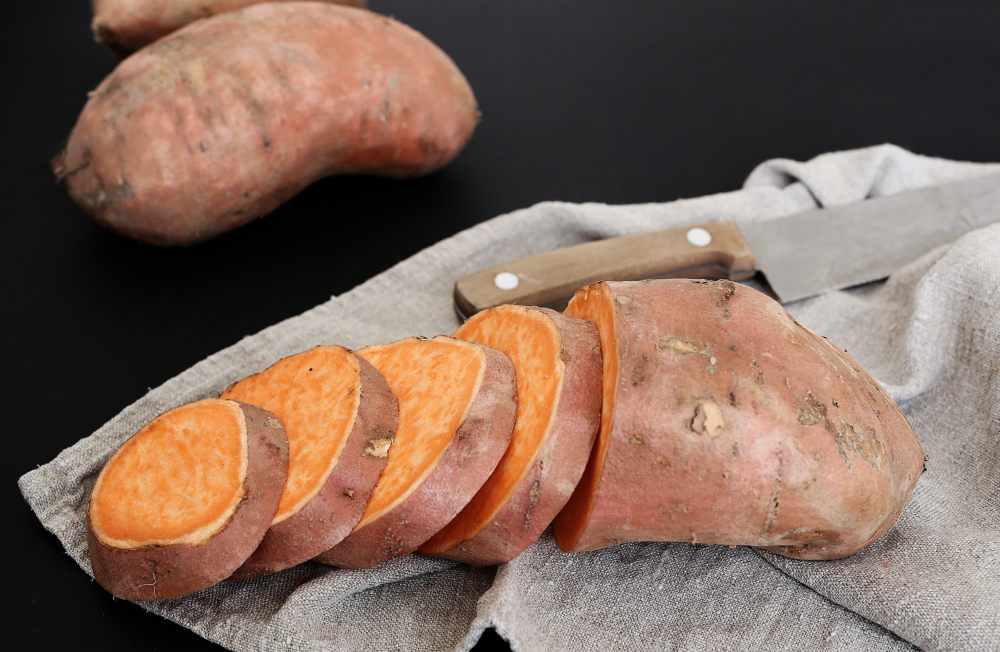
Sweet potatoes have the following health benefits.
Sweet potatoes are rich in fibre and low in sugar. They have a reduced risk of causing obesity, one of the critical risk factors for cardiac diseases.
They have a lower glycaemic index (GI). A new term for you? The GI value of a food item shows how much it can increase your blood glucose levels in a given time. It is measured on a scale from 0 to 100. The GI value of sweet potatoes is 54, which is lower than rice (73) and whole maize flour (99). So you will not experience a spike in your blood sugar levels. For your information, the World Health Organization (WHO) recommends using foods with a GI range of 0-55.
It is a rich source of potassium. Potassium helps you remove sodium from the blood, a significant cause of high blood pressure.
A cup of oatmeal can deliver 4 grams of good quality fibre to your body. It is also rich in omega-three fatty acids and minerals like iron, magnesium and potassium. A 100g serving of oatmeal has only 0.2g of saturated fats and zero cholesterol.
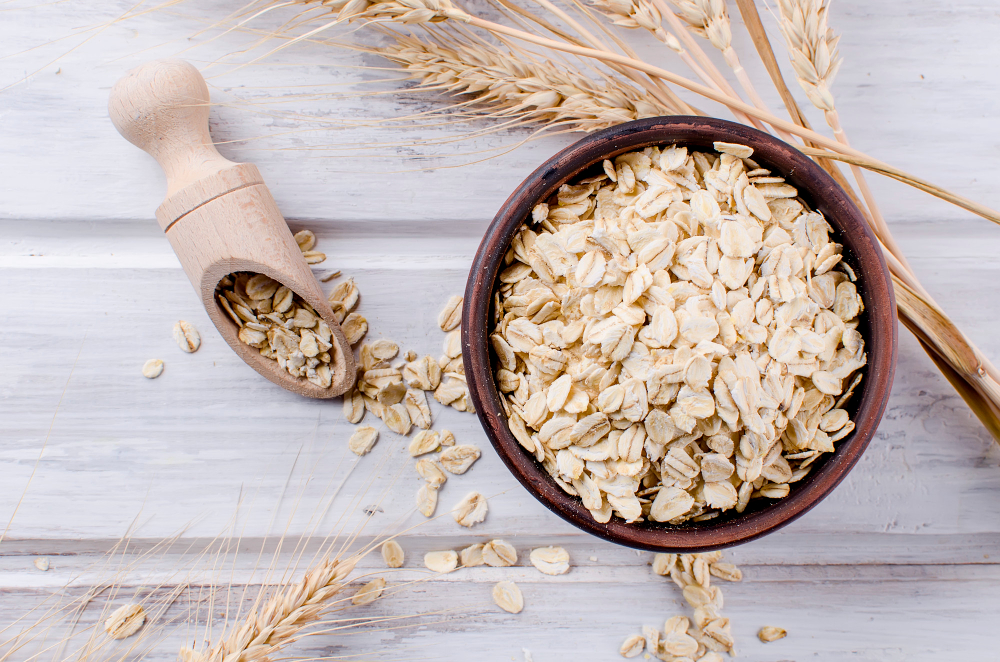
Replacing whole wheat bread with oat bread can be a wise choice.
Brown rice is delicious, but they are also an excellent source of fibre and B-complex vitamins and minerals, e.g., magnesium. Magnesium can help you reduce the risk of cardiac stroke and help you lower your blood cholesterol.
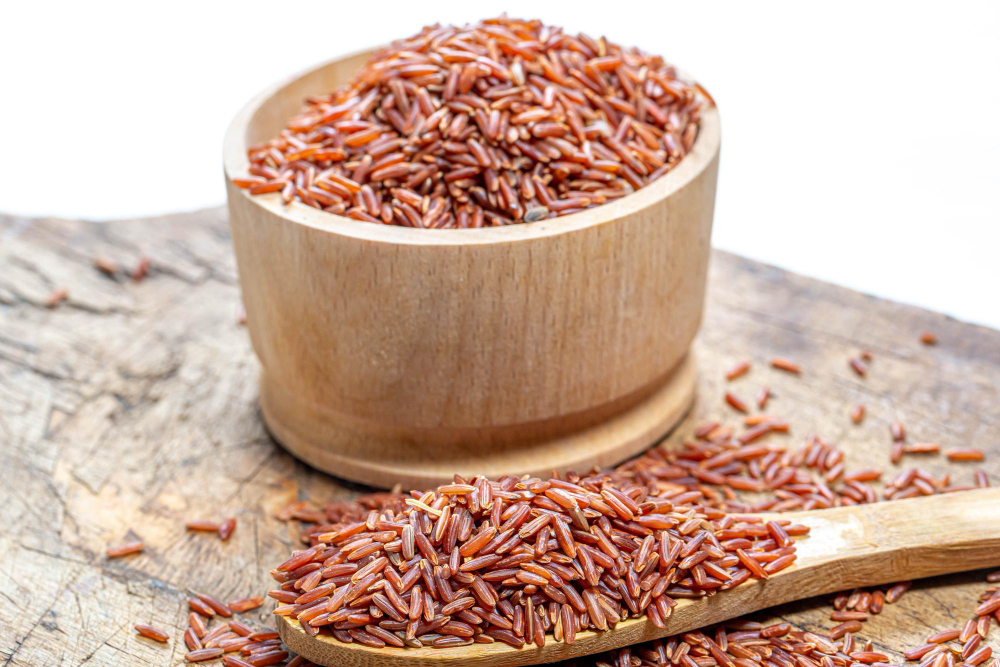
They are a good fit for any dish. It could be used with avocado salad, soups and black beans.
Carrots are a rich source of carotenes (alpha, beta and gamma carotenes). Studies have shown that a higher intake of beta carotenes is associated with a lower risk of heart attack and cardiac stroke.

It is also a powerful antioxidant, and a 2009 study showed that a daily dose of 50mg of beta carotene could significantly reduce the risk of cardiac diseases. Chopped carrots give a crunchy touch to your salads, and you can add shredded carrots to the muffins, pasta and tomato sauce.
Your eating and lifestyle habits are essential for your heart as your diet. The following instructions may help you to improve your heart health.
Reduce your portion sizes: How much you eat is as important as what you eat. Reducing daily food intake will allow you to maintain a healthy weight. Healthy weight is the key to successful cardiac health.
Plan your meals: Planning your meals can give your body a psychological advantage. The body prepares digestive enzymes according to the nature of the food consumed. Have you ever noticed that a prolonged waiting time in the steamy fragrance of meat results in fast digestion?
Regularise your meals: Try to fix the timings of your meals. A planned meal will allow your body to adjust accordingly. If you have a habit of intermittent eating throughout the day, your body will find it almost impossible to adapt to any routine.
Get enough sleep: Proper sleep helps you by improving the digestion of food. It will benefit your body and allow it to maintain its ideal weight and blood glucose.
Combine your foods with fruits and vegetables: The nutrients of vitamins and minerals in fruits and vegetables can help your body digest foods. It will also help your body avoid a sudden rush of blood glucose.
You can't imagine a healthy life without a healthy heart. Food could be a valuable tool to protect your cardiac health. Foods high in trans fat and salts are bad for your heart, while plant-based foods usually protect the heart. Excessive cholesterol is another cardiac risk factor. So, try to lower your bad cholesterol through a low-fat, low-salt and omega-three fatty acid-rich diet. Besides this, modify your lifestyle to make it more robust. These dietary and lifestyle changes will keep your heart beating for a long.
To see our at-home Heart Risk Disease Blood Test, click here.
For a full range of blood tests and medications, visit our Welzo Online Pharmacy Page. For more details, click here.










Plus get the inside scoop on our latest content and updates in our monthly newsletter.